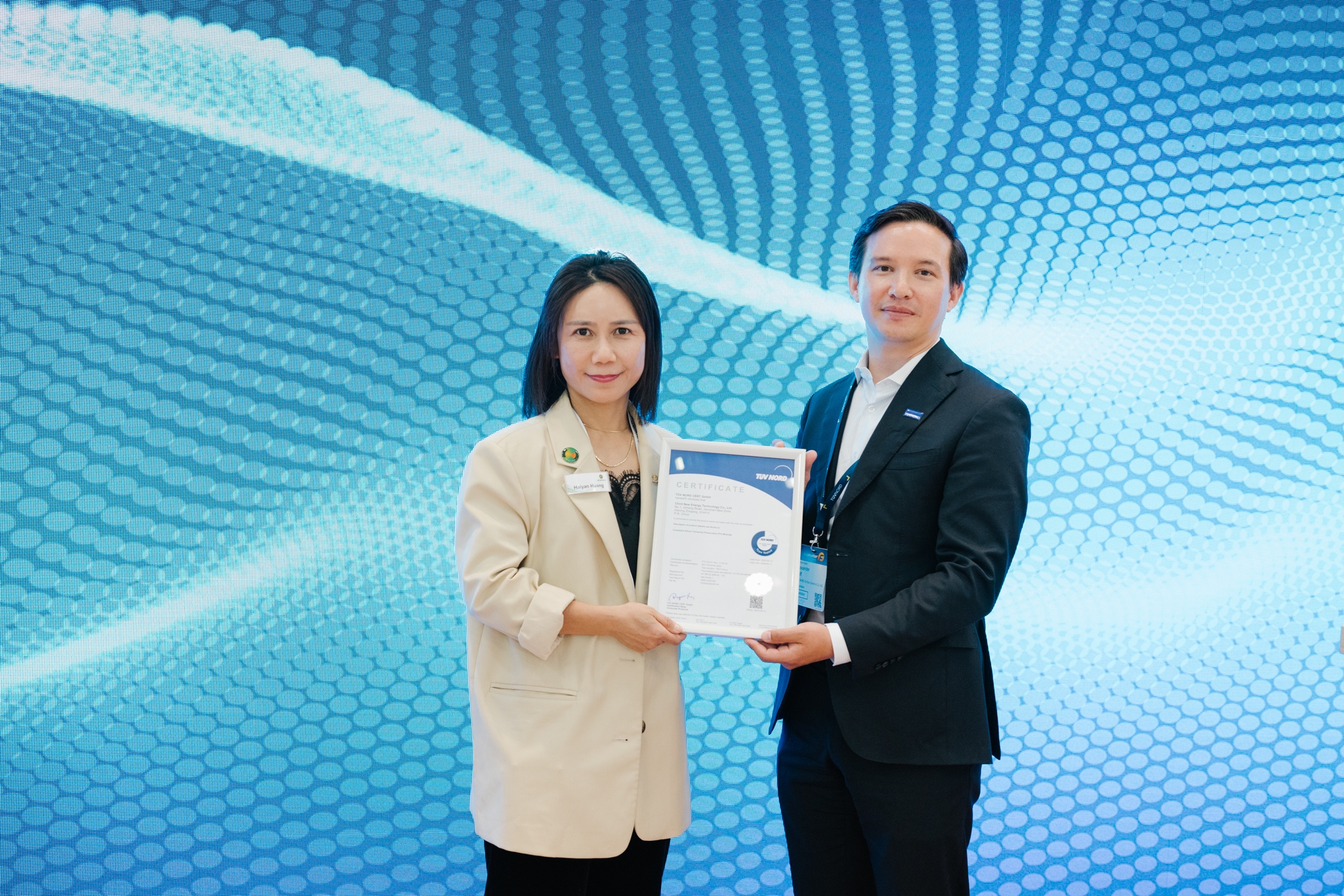


Grazie alle ottime prestazioni contro il LETID (Light and elevated Temperature Induced Degradation) dei moduli fotovoltaici TOPCon di tipo n della serie ASTRO N, Astronergy ha ottenuto la certificazione TÜV NORD LETID per i moduli fotovoltaici di tipo n in occasione della cerimonia tenutasi durante l'Intersolar Europe 2023 in Germania, il 14 giugno, sottolineando la forza pionieristica di Astronergy nella tecnologia TOPCon di tipo n.
Rispetto alla ben nota LID (Light-Induced Degradation, degradazione indotta dalla luce), la LETID continuerà a verificarsi e a riprendersi più lentamente per diversi mesi o addirittura anni dopo l'installazione del modulo fotovoltaico, con una degradazione della potenza anche superiore al 10%.
Per il test LETID, il TÜV NORD ha selezionato a caso i moduli TOPCon di tipo n della serie N di Astronergy. Durante il test, i moduli sono stati esposti a diverse condizioni e temperature in una camera climatica per un periodo più lungo. Per simulare le condizioni ambientali più realistiche possibili per l'uso continuo dei moduli TOPCon, la temperatura dei moduli deve essere di almeno 75°C e l'umidità inferiore al 60%, mentre i moduli sono sottoposti a un flusso di corrente definito. La durata minima del test è di 162 ore.
I moduli TOPCon di Astronergy hanno resistito alle condizioni estreme e si sono comportati con una perdita di potenza particolarmente bassa. Questo risultato dimostra il bassissimo degrado che i moduli fotovoltaici TOPCon di tipo n della serie ASTRO N di Astronergy presentano per tutta la loro durata.
Il modulo di tipo n di Astronergy ha superato i rigorosi test dello standard IEC TS 63342 2022 LETID. Questo certificato indica che è possibile garantire l'affidabilità e la bassa sensibilità LETID dei prodotti della serie", ha dichiarato Alexander Ohff, vicepresidente esecutivo di TÜV NORD Renewables.
Il certificato di Astronergy è un'ulteriore prova della nostra posizione di leader nella tecnologia TOPCon di tipo n, ha dichiarato Haiyan Huang, EVP e CSO di Astronergy. I nostri moduli TOPCon sono applicabili a tutti gli scenari possibili con prestazioni così elevate, che sicuramente saranno la scelta migliore per i clienti, ha aggiunto Huang. Con la capacità TOPCon di Astronergy che ha raggiunto i 36GW il mese scorso, i prodotti TOPCon ASTRO N dalle grandi prestazioni saranno certamente una parte vitale per la generazione di energia sostenibile a livello globale.
